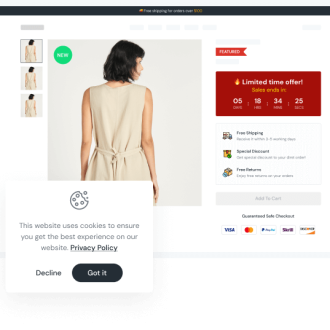The term “B2B” is quite familiar to those operating in the business field, especially the e-commerce industry. But what exactly is B2B? In this article, let’s learn about the concept, types, benefits, and differences between B2B and B2C marketing. Whether you are new to B2B marketing or a seasoned professional, the following information will greatly help you.
What is B2B eCommerce?
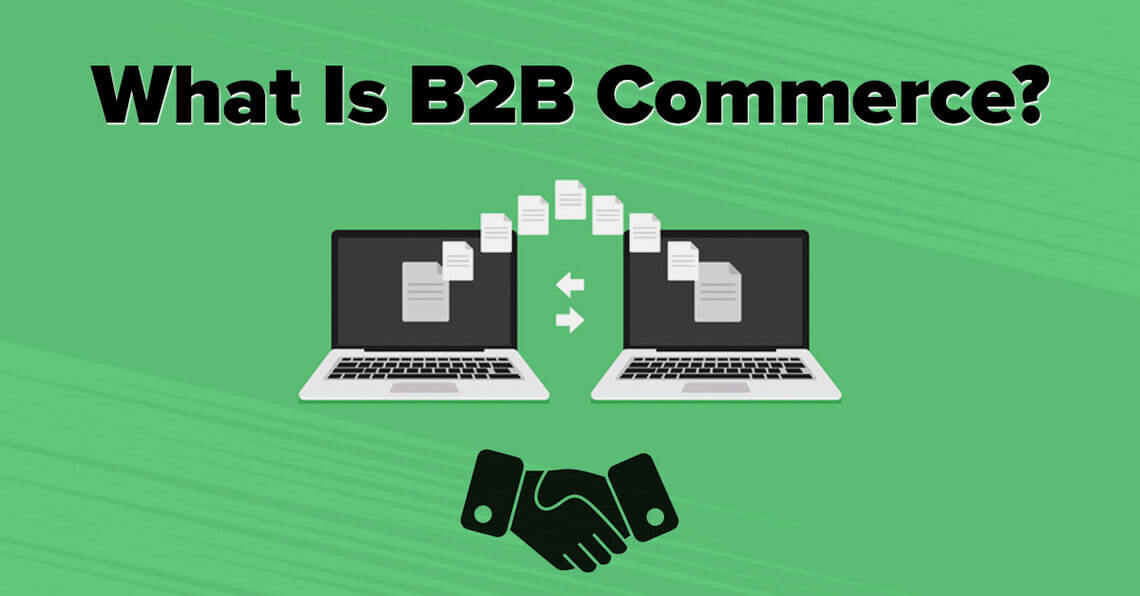
B2B, or Business-to-Business, is a term often used in the business industry. More simply, it refers to business activities between businesses. Instead of focusing on selling directly to the end consumer, B2B focuses on interactions and transactions between companies.
For example, imagine a company that manufactures electronic components. Instead of selling directly to users, the company will seek out other companies in the mobile phone industry and sell the components. Or a distribution company might buy from a manufacturer and then resell it to retail stores.
B2B includes e-commerce and some high-value face-to-face transactions that require a physical meeting. Today, the B2B model is more and more developed when businesses promote their businesses through commercial websites. The forecast shows that the percentage of websites aimed at organizations and businesses will continue to increase sharply in the coming years.
Who Are The Customers Of B2B Businesses?

The customers of B2B (Business-to-Business) businesses are other companies and organizations, not end consumers. Here are some examples of customers for B2B businesses:
- Manufacturing companies: They buy goods and services to transform into other products. For example, a leather and footwear company will buy large quantities of cowhide to produce footwear and sell it to consumers.
- Retailers: Grocery stores and supermarkets are typical examples of this customer. They will import products/services from the seller, resell them to consumers, and receive the difference in profit.
- Government: The government can also be the target audience for B2B businesses. The government and local authorities sign contracts with companies to provide products/services to serve the needs of the people: from construction to transportation to garbage collection, etc. This model is also called business. Business to Government (B2G) business.
Types Of B2B Business
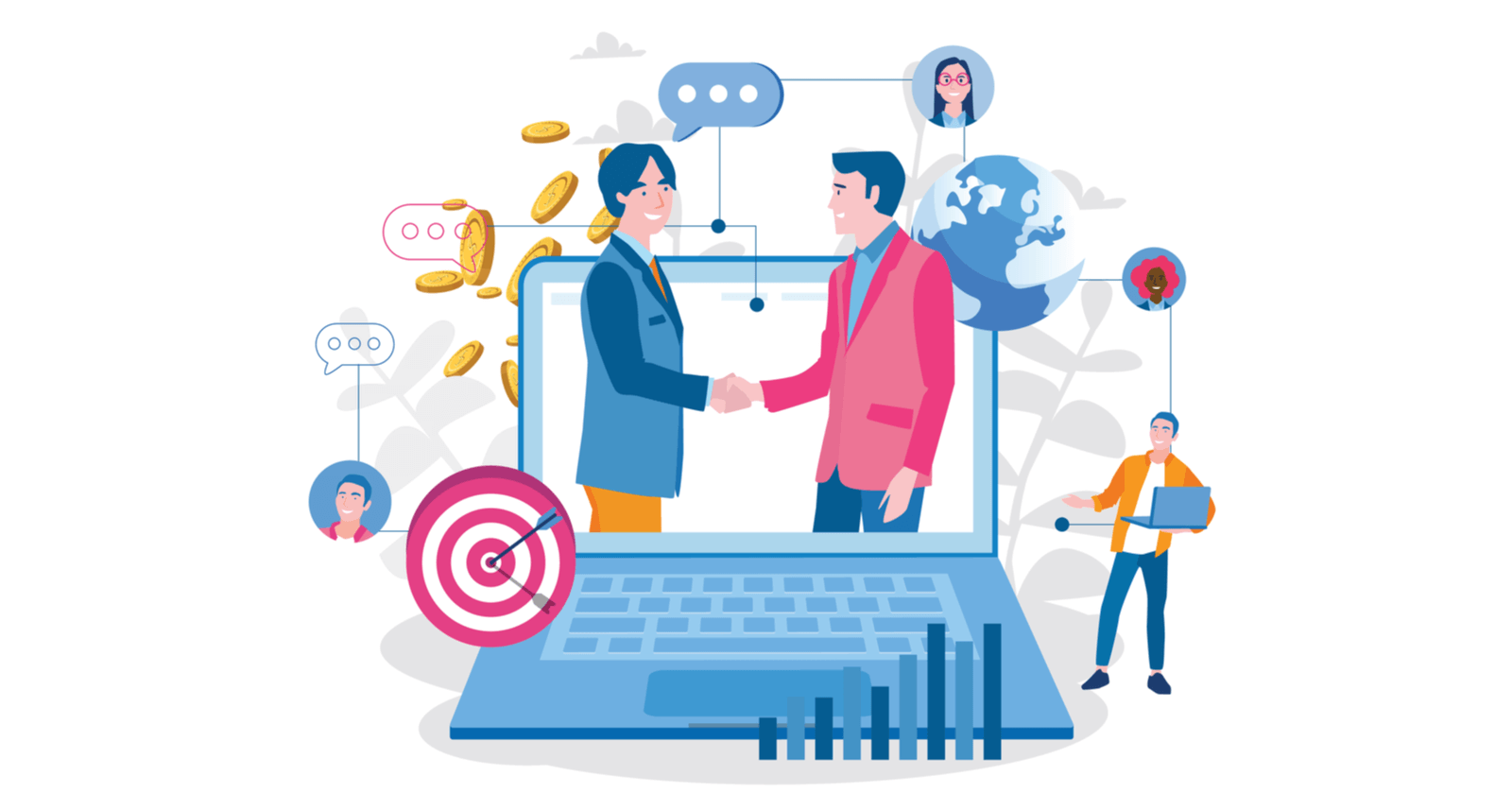
There are many common types of B2B business models that companies use to facilitate their operations and transactions. Here are some common types of B2B you can refer to:
Manufacturer-Distributor
In this model, companies act as suppliers or distributors of goods or services. They source from manufacturers or wholesalers and distribute them to retailers or other companies. This model typically involves bulk purchasing, warehouse management, and shipping management.
This type is commonly used in fields such as electronics, automobiles, and pharmaceuticals.
Manufacturer-Retailer
Similar to the Manufacturer-Distributor arrangement, the Manufacturer-Retailer concept exists. Nonetheless, rather than relying on intermediaries, producers sell their products directly to merchants, who subsequently sell them to end customers. The fashion, cosmetics, and consumer goods industries all follow this paradigm.
This arrangement benefits manufacturers since it gives them more control over their brand and product pricing. Retailers benefit from this strategy because they may give their customers exclusive merchandise.
Manufacturer-Wholesaler
This model is similar to the Manufacturer-distributor model. However, instead of relying on distributors, manufacturers sell their products directly to wholesalers, who then sell them to retailers or other enterprises. A manufacturer-wholesaler is commonly employed in the food, beverage, and agriculture industries.
This approach benefits manufacturers since it allows them to sell their products in bulk to wholesalers at a lower price, increasing their profit margins. And it benefits wholesalers since it allows them to offer a diverse choice of products to their customers at affordable pricing.
Service Provider-Client
The Service Provider-Client model is a B2B business model in which service providers give services to clients who require them. This model is often used in fields such as consulting, legal services, and marketing.
It benefits service providers since this model allows them to supply their expertise to those who require it. Clients, on the other hand, benefit from this model because they can obtain specialized services that they might not be able to supply in-house.
What's the Difference Between B2B And B2C?
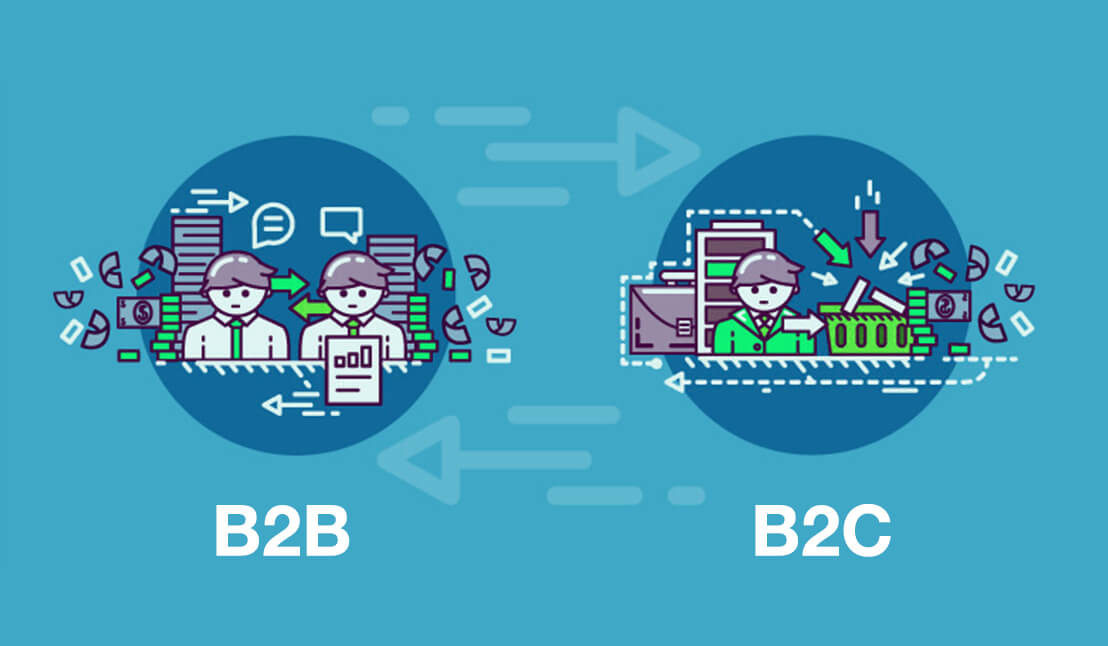
B2B (Business-to-Business) and B2C (Business-to-Consumer) models are two important concepts in the business field. Here are the differences between these two models:
Customers Target
- B2B: In B2B, the main customers are businesses. Transactions that occur between companies, such as the purchase and sale of goods, services, or information business organizations.
- B2C: In B2C, the customer is the end consumer. Transactions happen between businesses and individual shoppers.
Transaction Scale
- B2B: B2B transactions are usually larger in size. Businesses often buy and sell goods in bulk, such as components for production or wholesale to retailers.
- B2C: B2C transactions are usually smaller in size. A business that sells goods directly to end consumers, typically consumer products and services.
Customer Relationship
- B2B: In B2B, customer relationships are often longer and more complex. Companies often build long-term relationships, focusing on establishing a trusted business partner and building trust.
- B2C: In B2C, customer relationships are typically short-term and focused on creating a single transaction. Businesses focus on creating a good buying experience for customers and motivating them to buy.
Marketing Strategy
- B2B: In B2B, marketing strategies often focus on building relationships and finding business partners. Marketing channels include business networks, trade shows, and company-to-company relations.
- B2C: In B2C, marketing strategies focus on reaching and engaging consumers. Marketing channels typically include mass media advertising, online marketing, and social media.
Benefits Of B2B In Business
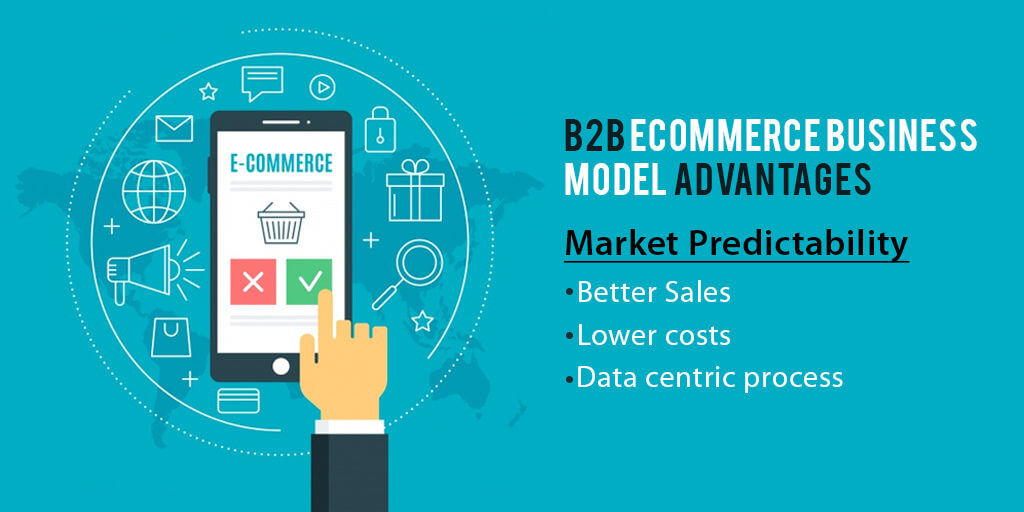
The B2B model offers numerous benefits for businesses. Let’s explore some of the key advantages:
Market Expansion
The B2B model allows a business to expand its market by connecting with other companies in different industries and geographical locations. This opens up the opportunity to reach new customers and target a wider audience.
High and sustainable returns
B2B transactions often involve larger order volumes and higher transaction values than B2C (Business-to-Consumer) transactions. This means that businesses can generate more revenue per transaction, resulting in increased profits and business growth.
Convenience
While companies typically sell through storefronts, B2B e-commerce businesses often take place online. This makes it easy to advertise their services/products, making it easier for other companies to consider and place bulk orders.
Long-term relationships
B2B transactions often involve building long-term relationships with customers and suppliers. Building trust and maintaining strong business relationships can lead to ongoing trading and partnership continuity, facilitating stability and a steady stream of income.
Collaborative Development
The B2B model encourages cooperation and beneficial partnerships. Businesses can leverage each other’s expertise, resources, and networks to achieve common goals. This partnership can lead to innovation, efficiency improvements, and access to new markets.
Upselling and cross-selling opportunities
B2B relationships often involve ongoing interactions and repeat transactions. This opens the door to upselling complementary products or cross-selling related services to existing B2B customers, thereby increasing sales and revenue.
Enhance Brand Reputation and Reputation
Engaging with successful B2B partners and providing high-quality products or services can enhance a company’s reputation in the industry. Positive referrals from satisfied B2B customers and other testimonials can strengthen a company’s brand image.
B2B Ecommerce Challenges
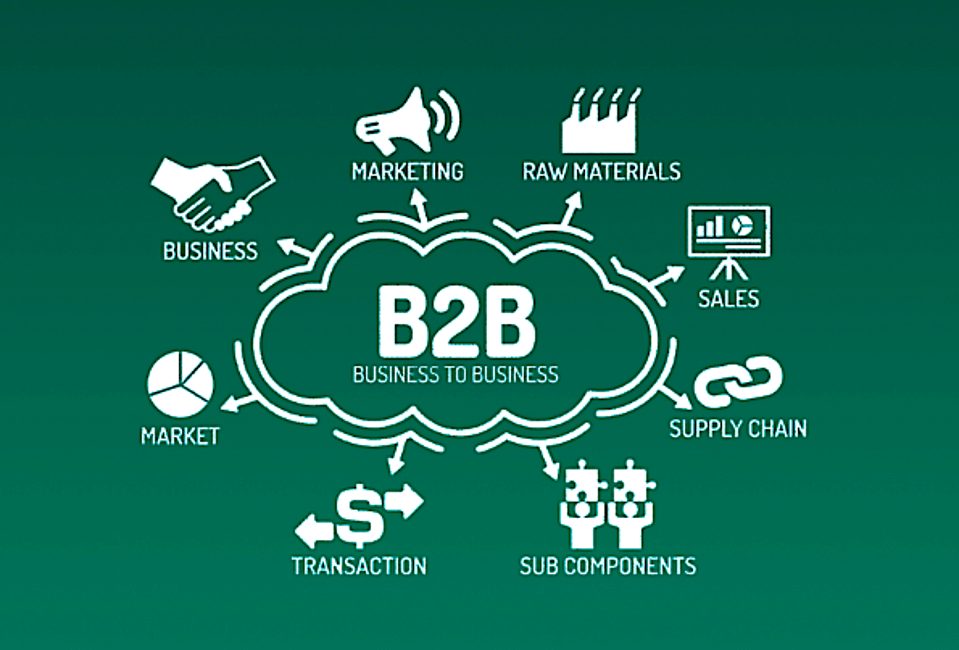
B2B e-commerce, like any other business model, presents its own set of challenges. By understanding and addressing these challenges and risks, B2B businesses can implement the right strategies and solutions to achieve success and gain a competitive advantage in the business landscape.
Complex Product Catalogues
B2B businesses often have to deal with multiple products, variations, and customizations. Managing and organizing a complex product portfolio can be daunting, especially when there are many SKUs, different price tiers, and diverse product configurations.
Integration with Backend Systems
B2B e-commerce platforms need to integrate smoothly with other platform systems such as CRM (Customer Relationship Management), ERP (Enterprise Resource Management), inventory management, and transportation systems. Ensuring smooth data flow and information synchronization between these systems can be quite complex.
Personalized Pricing and Quotations
B2B customers often expect personalized pricing based on factors such as order volume, contract terms, or specific agreements. Implementing and managing dynamic pricing and quotes can be challenging, especially when there is a large customer base.
Complex order management
B2B e-commerce includes managing complex order processes, including multiple shipping addresses, parcel delivery, partial delivery, and order approval. Optimizing and automating these order management processes can be a challenge.
Data security and privacy
B2B e-commerce transactions involve the exchange of sensitive information about customers and businesses. Making sure strong data security, protection from cyber threats, and compliance with privacy regulations are critical in B2B e-commerce is critical.
B2B Marketing Strategies to Grow Your Business
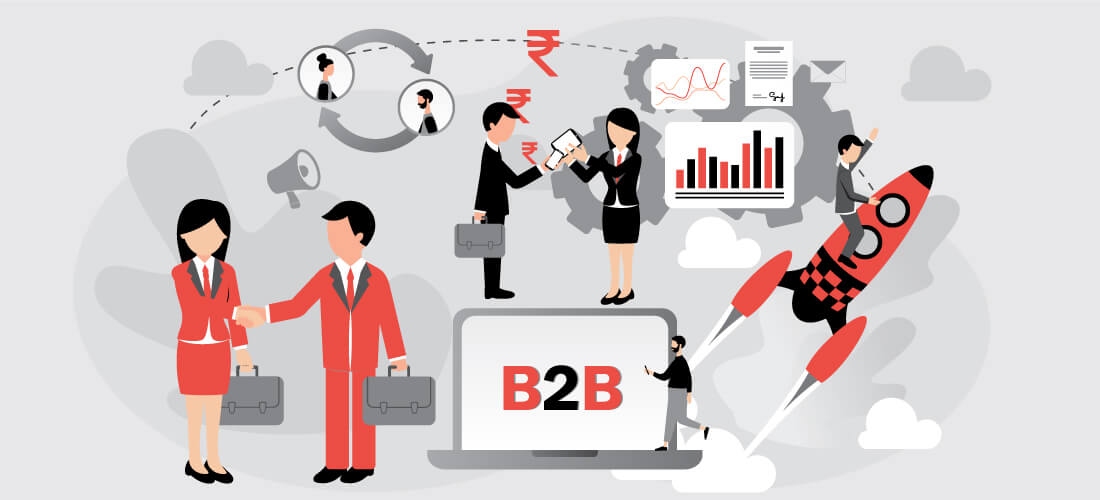
To succeed in B2B marketing, businesses can adopt the following strategies:
- Email Marketing: Write catchy headlines to attract readers. Don’t forget to include a call to action (CTA) for each email. And finally, design beautiful emails in each segment.
- Website Marketing: By running PPC (Pay-per-click) campaigns, create a beautiful website full of your information, services/products.
- Social Media Marketing: Marketing sales through social networks such as Instagram, Facebook, Twitter, LinkedIn, etc.
- Content Marketing: Anticipate what your customers search through tools like Google Ads, Ahref, etc. Then SEO the keywords up to increase your website’s search rankings on Google. And finally, generate the conversion.
- Marketing automation: Marketing automation refers to a type of software that helps large, medium, and small businesses optimize their marketing efforts. This is achieved by combining several separate tools under one large roof. These tools include a website builder, bulk mailer, and CRM. It has always been embedded with a sophisticated software platform for analysis, tagging, grouping, and statistics.
To Sum Up
B2B – a business model between two businesses, is an important foundation in the modern business world, bringing great benefits and significant development opportunities. However, there are also challenges to face. To succeed, build a smart marketing strategy, leverage technology, and build trusted relationships. With B2B, you can expand your business and explore its unlimited potential.



